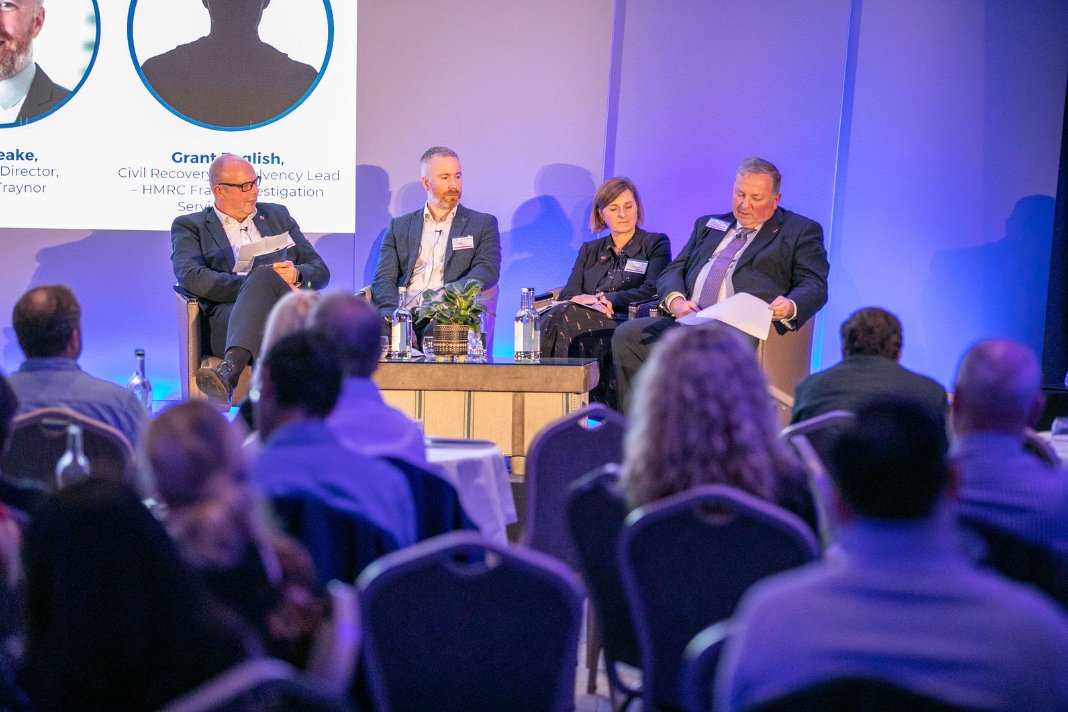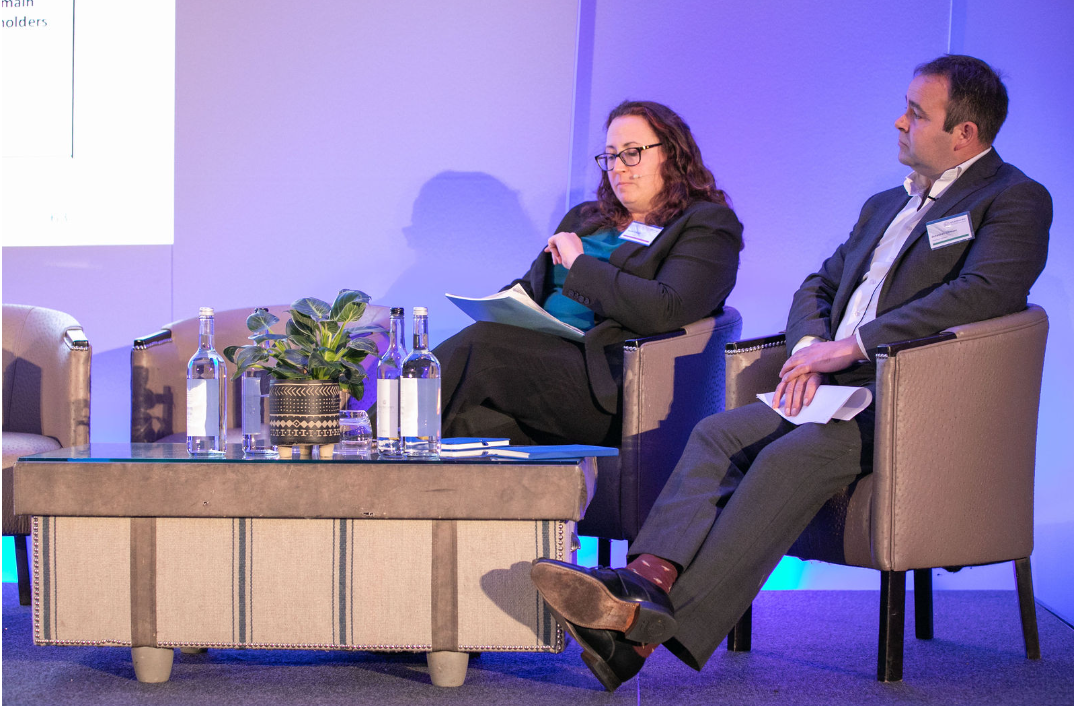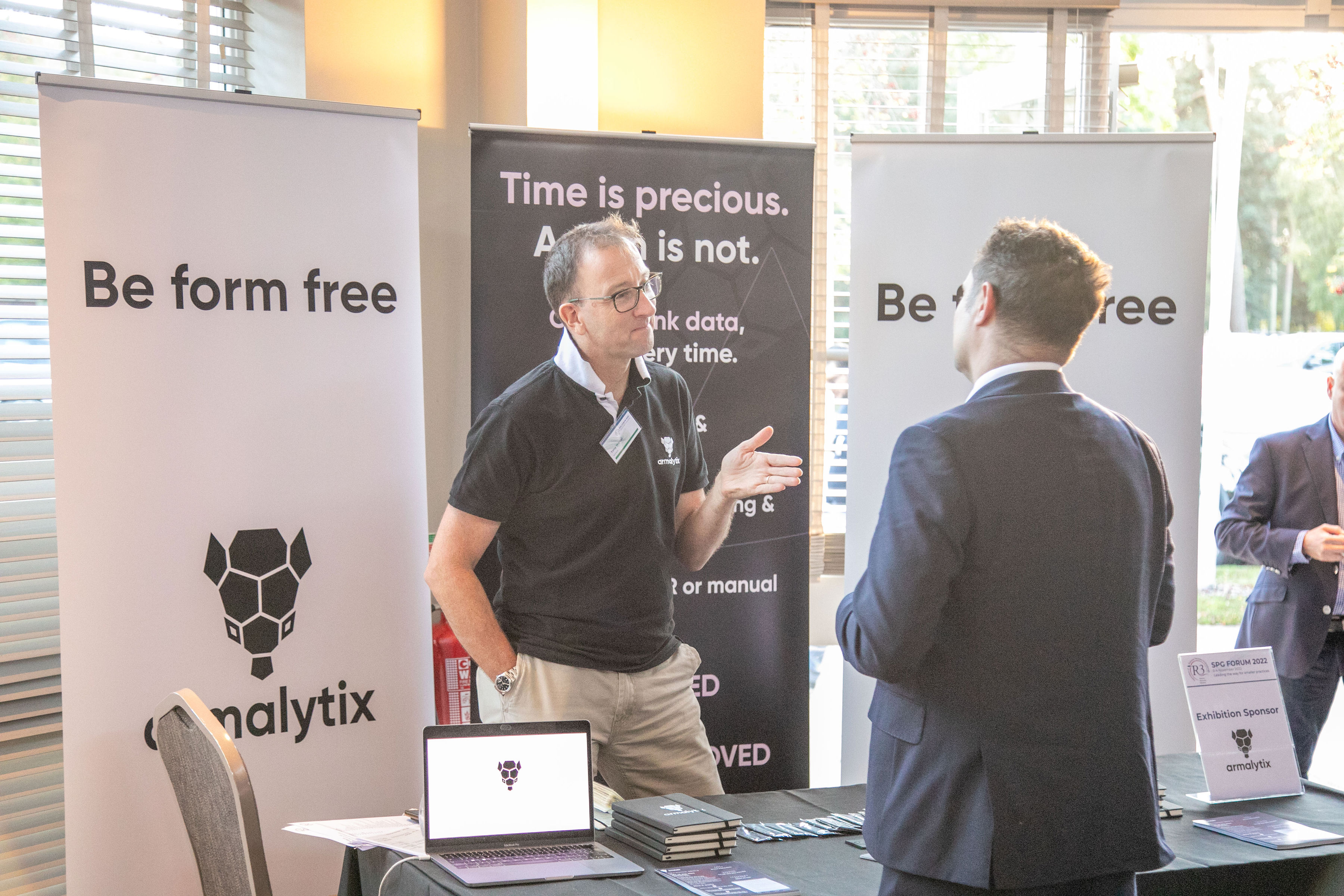
SPG Forum 2022: Back in person
16 November 2022
The first week of November saw R3’s first face-to-face SPG Forum since 2019.
Hosted at the Belfry Hotel & Resort in Birmingham, the Forum brought together more than 200 delegates from across the UK and explored a whole host of trending insolvency and restructuring topics, from firm regulation to cryptocurrency, and talks from prominent figures in and connected to the insolvency profession.
In this blog, we explore key takeaways from some of the sessions …

Keynote Address: Prof. Geoff Thompson
One of the highlights of this year’s Forum was our keynote speaker: former five times world karate champion Prof. Geoff Thompson MBE FRSA DL, who was Deputy Chair of the Birmingham 2022 Commonwealth Games Board.
Prof. Thompson highlighted some of the achievements that came from the Games, which brought together 180 nationalities and awarded 877 medals – including Commonwealth Games record haul of 176 for Team England.
This year’s Games had more paralympic sport than ever before at a Commonwealth Games and more medal events for women than men for the first time ever at a major multi-sport event.
Turning to the Games’ legacy, Prof. Thompson outlined the benefits the £778 million investment in the region to stage the Games will have for its residents, and how it will support people who don’t think exercise is for them to be more active.
Insights from the Insolvency Service
After the keynote speech, Justin Dionne and Paul Bannister from the Insolvency Service delivered an update on key technical and policy issues affecting small practices.
Both speakers expressed their desire to engage with the profession on a range of issues and were especially keen to hear the voice of smaller practices on several areas.
Of particular importance were Paul Bannister’s comments on the BEIS IP Regulation Consultation, where he recognised that the profession was unanimously against the idea of a single regulator being based within the Insolvency Service.
Looking forward, Paul noted that we can expect to see a government response to the IP Regulation Consultation by early next year.
Regulating firms
After the break, representatives from the FCA discussed their interaction with the insolvency & restructuring profession, in particular the shared aim in reducing harm in firm failure.
The ‘phoenixing’ of firms was highlighted as an area where the expertise of IPs could complement the work of the FCA. The representatives also wanted to make the audience aware of the new insolvency process, the PESAR, which can be entered into by Payment and Electronic Money Institutions.

Getting technical
R3’s Head of Technical Ben Luxford delivered a thorough update on the work the technical team have been done over the last 11 months.
A key area of discussion was around work with HMRC, with the team and the R3 Tax working group having raised a number of ongoing member frustrations including HMRC and the application of Crown set-off, tax clearance, payment of VAT Refunds without a clear reference or VAT number, issues setting up a EPA Scheme, VAT deregistration and Dropbox cut off times.
Ben also gave an overview of the proposed reforms laid out in the Economic Crime and Corporate Transparency Bill which seeks to strengthen the UK’s corporate governance framework.
One key takeaway from this discussion was around IPs being liable for failure to comply with the provisions introduced by the Bill as there is a real possibility that an administrator and/or liquidator may be at risk due to the lack of an express carve-out in the Bill to exclude IPs from liability.
Working with HMRC
After a lunch, members were treated to a panel discussion on how HMRC and insolvency professionals work together to recover assets in cases of tax fraud with representatives from HMRC, the IPA and the profession.
The key takeaway from this was that information sharing could mutually reduce costs and maximise returns in cases of fraud, and during the Q&A there was a healthy exchange of views on how IPs can support HMRC in pursuing fraudsters without sacrificing commercial considerations.

Impact of Sequana
As well as addressing some of the key themes and cases from the past six months, the Legal Update session from Gatehouse Chambers explored the long-awaited Sequana Supreme Court judgement which has provided some clarity around director duties of company’s facing financial difficulties.
The case argues that the directors' duties to prioritise the interests of creditors ought to apply where a company is at a real (as opposed to remote) risk of insolvency.
While this decision recognises that shareholders retain a valid economic interest prior to insolvency becoming inevitable, for creditors this ruling may feel concerning, as the trigger point for when their interests must be considered is pushed back, creating uncertainty around when they must become the priority.

Maximising returns from insolvency claims
The final session of the day was another panel session hosted by Manolete Partners, Harveys Insolvency and Turnaround, and Chamberlain & Co, this time looking at different ways of maximising returns in difficult insolvency cases without exposing the IP to unacceptable risk.
Four interesting case studies were put forward where external funding allowed IPs to pursue claims that they would have otherwise found too risky, leading to greater returns to creditors without exposing the IP to risk.

Breaking down crypto
On the final day of the forum, delegates split into three breakout sessions, including a presentation on how to recover crypto as an asset class in an insolvency procedure.
The presentation emphasised that, you do not need to know the ins and outs of blockchain technology to realise crypto assets and distribute the proceeds to creditors.
Another key point was the importance of moving fast to seize crypto assets using existing insolvency powers, as the faster you can take control of these assets, the easier it is to track them down and realise them.
Avoiding regulatory pitfalls
This year’s SPG closed with a session led by representatives from the ICAEW and the IPA.
In the session, delegates were encouraged to review the effectiveness of their Anti-Money Laundering policies and procedures, including recording SAR considerations, staff training on suspicious activity, CDD steps and exit plans for non-compliance prior to appointment.
The discussion also covered SIP 11, which requires IPs to conduct annual reviews of their financial controls and tips to help IPs avoid regulatory penalties for breaches.
Over – for this year
Thanks to everyone who attended the 2022 SPG Forum – delegates, speakers and sponsors. We’ve already started work on next year’s Forum – and the bar has, once again, been set very high…



R3 members can provide advice on a range of business and personal finance issues. To find an R3 member who can help you, click below.

 Stuart McBride
Stuart McBride Lyle Horne
Lyle Horne
